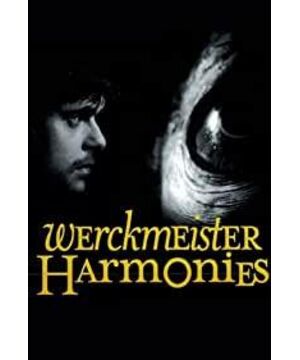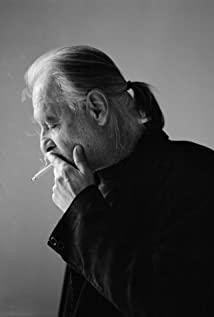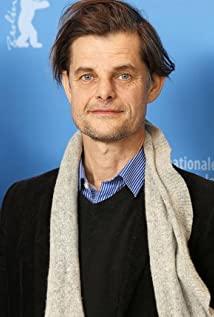The Death of the Whale begins with the male protagonist dancing in a tavern to tell a story to the drunken customers. Let the boss and the customer play the roles of the sun, the earth, and the moon, respectively, and then a total solar eclipse occurs. "The air suddenly becomes cold, the sky is completely dark, and all living things are quiet." This is an insinuation of the social environment at that time. The shortage of coal led to heating problems, schools and governments were closed, drugs were in short supply, buses were suspended, telephones were blocked, and street lights were not on. "Will the sky collapse? Will the ground under my feet crack?" This was the fear in everyone's heart at that time. The male protagonist represented the image of the youth at that time, and his heart was full of hope. "The sun shines again, there is light on the earth again, and all people escape from the darkness." He believes that there will be changes, like God's miracles, that can change the social environment of the time. So he was kicked out of the tavern by the boss because the boss was afraid of change. Combined with the picture of the celestial sphere in the male protagonist's room, it is easy to think of the heliocentric theory, which shows from the side that the male protagonist believes in the power of change in his heart. In the next long shot, the male protagonist walks alone on a dark night road. The houses on both sides could hardly be seen due to the darkness, and only the weak street lights could see the male protagonist. The loneliness of the male protagonist is highlighted here. Most people have despaired of the environment at that time, and only the male protagonist still believes in the light. In the back, there is a shot of the male protagonist advancing towards the dawn after hearing the news of the riot, which represents the joy of the male protagonist feeling that the light is coming after seeing the change. The male protagonist saw the giant whale in the square and was shocked by its huge body. It is a natural miracle, a creation of God, "whom God made for his own pleasure". At the same time, it also represents the change itself. The old musician once said to the male protagonist that whales are the product of advanced evolution. The large size of the whale represents a great force for change, but at the same time it stinks, implying that change is not necessarily right. "It's not about the whale, but the whale is the cause of it all." and "how much trouble you get into, even if you don't hurt anyone." There's nothing wrong with change, but wrong change hurts people. The male protagonist did not see the prince this time. The prince didn't show up until the end of the film, we just heard his voice and saw his shadow. Knowing he's a foreigner and gaining followers by promoting his atheism theories. The prince was not allowed to show up because he represented an idea, an idea from a foreign country, not a specific person. The square is full of people who are besieging the city. This is the first image of the people in this film, the participants of violent luan. They are afraid of the current environment, so they decide to take action. "I don't know if tomorrow is the end of the world, so The focus is on unity. We cannot be negative until disaster strikes. "But they don't know how to change the status quo, so it's easy to be inspired by a theory and become its followers. As the prince said, "those who are afraid know nothing." So the first time on the square The people in the movie just formed a circle and were silent with each other, because the prince was not there, they didn't know how to act. The fire is a symbol of the riot in the film, so from the second to the third time, the fire in the square became more and more vigorous, representing As the changes are in full swing, the violence intensifies. Another image of the masses is people who are afraid of change. They all hide in their homes, continue their ordinary lives, indulge in their own desires, and occasionally curse the violent people who destroy them Peace of life. The male protagonist came to the cafeteria. The cafeteria worker was abusing the rioters. She said that the bell of the church, which had not been moved for many years, actually moved during the prince's speech, and the poplar tree was uprooted from under the concrete. The bell of the church represents a kind of Faith, has not moved to illustrate the imprisonment of Christianity on history. The changes brought about by the prince's speech made the history of this country start to turn. The deep-rooted ideology represented by the poplar tree was uprooted by the prince's atheism. The male protagonist came to his care. Among the old musicians, he is making a recording on music theory. "Faith is based on harmony, but does harmony exist? All the movements over the centuries are wrong, and the harmony of the music is based entirely on the wrong foundation, which is an obvious deception. In the days of Pythagoras, people were satisfied with the fact that they would not be bothered because they could only play a few tones. Later the insane arrogant wished to have all the harmony and the elites found a solution: the octave, the twelve semitones divided into twelve equal parts, and the ten black keys replaced by five. Now we have to focus on the seven-tone method, of course the natural tones have their limitations, which are annoying limitations that preclude the use of some of the better features. "Uncle Giri is a representative of the country's artists, who understand that the harmony of the old society is an obvious deception, and this society needs change. But also soberly aware that the change itself has many annoying limitations. Then in his room, Uncle Giri's ex-wife told him that he was organizing a city cleaning campaign with the police chief to restore order. Funds need to be raised for this purpose. I hope he persuades Uncle Giri to be the president of the association and follow the list to raise funds. To interfere with his artistic creation as a threat. In the end, the old musician agreed to his request. This was the choice of the artists of that era. They understood the importance of change, but they all chose Mingzhe Stay out of trouble. But the director does not want to criticize them, because they are only for better artistic creation. After the male protagonist took the old musician to talk to the two men, they parted ways at a fork in the road, and then the two drifted apart in the camera. This shot represents the different choices of the two: the old man chose to stay out of the matter and continue to create art; the male protagonist chose to be a bystander and witness the process of change with his own eyes. When the male protagonist returned to Aunt Tang De to return to life, the police chief got drunk, then cursed the violent luan, and began to dance with Aunt Tang De. It satirizes the decadent numbness of the conservative forces, the change is in full swing, and they choose to avoid the lavishness. The male protagonist took care of the two children of the police chief according to her request. The two children made a mess in the room and beat the male protagonist. This is an insinuation to the rioters, ironing that their changes are childish as children slapstick. "I'm going to annoy you...I'm going to mess with you...I'm going to punish you..." the little boy shouted at the fan like a slogan of a violent luan. The male protagonist overhears the conversation between the circus owner, the prince and the translator on the truck. The translator said to the boss: "In the eyes of the followers he is the prince, he has magical power, but this power has a flaw." "The prince has followers, the boss has money." This is the true face of the prince, he uses him The idea of incites the masses to be violent, just to gain followers, and the boss is to get money. But as the violence intensified, the boss chose to quit out of fear. Then the prince gave a long speech: "What they are going to build and what they have built is ruins, what they have done and what they have done is deceit and lies. Their ideas are absurd. People who are afraid know nothing. We will destroy everything, we will subdue them with fury and punish them. The fear has come, and the massacre is about to begin." This passage reveals the essence of the change he seeks: he uses the fear of the people to inspire them to rebel , use their rage to punish the conservative forces, and brutally kill the conservative forces, and finally achieve the purpose of changing the social reality. This passage also implies that the tug-of-war is imminent. In the next shot, the male protagonist runs in the dark, and the darkness drowns his face. The male protagonist's heart was officially submerged in darkness. The nature of the change he once believed was so cruel that his belief collapsed in an instant. Then comes the climax of the film - the robbery of the hospital by the violent people. The whole destructive process came to an abrupt end with the appearance of an old man. In black-and-white shot, the backs of the two violent luans are pitch black, and the triangular composition consists of a scrawny old man standing in a bright light, completely naked facing each other them. The old man in his dying years has awakened the sympathy in people's hearts, which is a feeling completely lost by the violent tyrant, and this feeling directly leads to the end of the tyranny. Because they suddenly came to their senses, what they were destroying was actually their own home, and what they were destroying and infringing was actually their own family. The director also told us through this lens that the biggest flaw of this revolution is that it ignores human nature. After the storm was over, the camera shot the departing crowd from a bird's-eye view. In stark contrast to the mighty and angry crowd when they came, people all bowed their heads in decadence and confusion. This is the director guiding the audience to reflect on this change. Conservative forces began to fight back, sending tanks to clean up the rioters. The male protagonist's uncle was killed, and he himself was arrested. In the end, the male protagonist, who was an innocent bystander, became insane and was admitted to a mental hospital because of the persecution of conservative forces. More because of the collapse of his inner beliefs. The old musician came to visit him and said to him, "I have retuned the piano, and you can play any music you want." This shows that the old man, as an artist, has completely bowed his head to the conservative forces, and just wants to be engrossed in artistic creation, and at the same time It also declares that the reform has officially failed. At the end, the old man came to the square. At this time, the violent people were no longer there, and the whale died in the square, marking the dissolution of the change itself. The old man sighed in the face of it, then turned to leave, the picture was frozen at this moment, and the movie officially ended. When they came to the square, the violent people were no longer there, and the whale died on the square, marking the dissolution of the change itself. The old man sighed in the face of it, then turned to leave, the picture was frozen at this moment, and the movie officially ended. When they came to the square, the violent people were no longer there, and the whale died on the square, marking the dissolution of the change itself. The old man sighed in the face of it, then turned to leave, the picture was frozen at this moment, and the movie officially ended.
View more about Werckmeister Harmonies reviews









